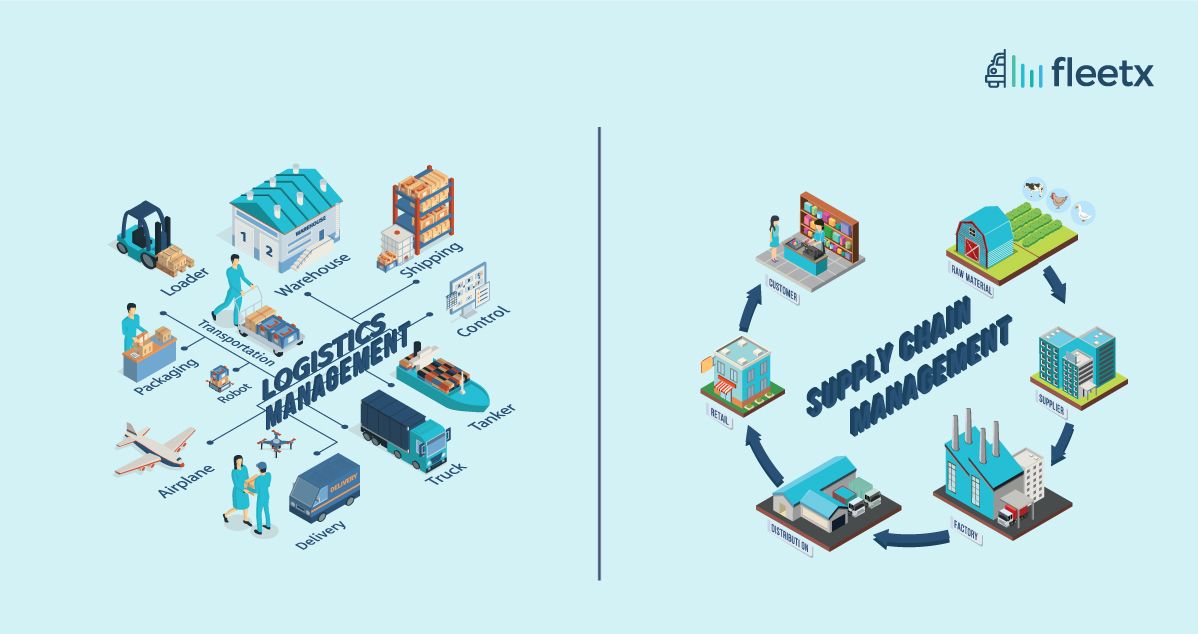
Our country's economy heavily relies on the transportation and delivery of goods. The transportation industry in India is huge, but it's also quite messy and lacks skilled workers. Most of the goods are moved by trucks on the roads.
Quick Insights: The Short Version of This Blog
- The transportation industry in India is crucial for the country's economy but faces challenges due to disorganization and a shortage of skilled workers.
- Fleet management is challenging, especially for small trucking companies with limited resources and staff.
- The number of trucks on Indian roads is expected to increase significantly, creating both opportunities and difficulties for the trucking industry.
- Trucking companies must address challenges such as lack of professional assistance, low rates, high driver turnover, compliance failure, poor vehicle maintenance, highway conditions, and cargo theft.
- Implementing fleet management solutions, using route planning software, and employing fuel monitoring systems can help overcome some of these challenges. Government initiatives and infrastructure development are also vital for the industry's growth.
Managing a fleet of trucks is a challenging job because there are many things to consider, and the systems in place are not very efficient. Small trucking companies face even more difficulties due to limited resources and staff.
In the future, there will be a lot more trucks on the roads, nearly four times more than now because more and more things need to be transported. Even though the trucking industry can be exciting and profitable, it's not always easy. Many trucking businesses fail for various reasons.
To succeed, trucking companies need to understand and deal with these following challenges effectively. By doing so, they can make their businesses stronger and more successful in the long run.
Absence of professional and technological assistance: Fleet truck owners try to handle a variety of tasks on their own and wind up managing loading, dispatching, driver safety, driver relations, accounts, insurance renewals, and other tasks. The person runs into time and energy constraints that make it challenging for them to execute all of their tasks on time and effectively.
Fleet owners must find a means to obtain expert assistance for the tasks they lack the time, energy, or expertise to do. Another important resource for fleet owners is technology, but fleets with little resources may not always have access to it. A significant obstacle is the lack of professional and technological skill, in addition to the cost of acquiring and installing technological items.
Cash flow and low rates: Operating a trucking company can be far more expensive than many owners think. Simply because they don't charge reasonable market rates for their services, many trucking companies go out of business. Undercharging can adversely affect your cash flow and put you in the red very quickly.
Instead, owners of trucking companies should get aware of the going rates for their services as well as the true costs associated with operating a firm. They may maintain a profitable operation by implementing the appropriate rates and maintaining precise cash flow data.
Maintaining a low driver turnover rate: Most fleets struggle with a high driver turnover rate, particularly given the severe driver shortage the trucking industry is currently experiencing. A trucking company might soon go out of business with poor management. There is nobody to take their place when drivers resign. Uncontrolled costs occur and tasks are carried out ineffectively.
fleets may find it especially harder to compete with huge corporations in terms of competitive packages, better pay, and bonuses because they typically lack the large budget that big organizations have. According to studies, 57% of recently employed drivers quit their jobs within the first six months. fleets can decrease the early driver turnover rate by streamlining the driver recruitment process and developing a better driver on-boarding system.
Failure of Compliance: Failure of trucking companies can be attributed to a lack of attention to compliance and safety regulations. This can occasionally happen as a result of the owner taking on too many duties. It occasionally happens because it is more practical and affordable to not comply.
The major difficulties experienced by fleet owners in India
Poor Vehicle Maintenance & rising costs : The biggest problem for Indian truck drivers is the miserable condition of the trucks. Without proper and regular maintenance, your vehicles are prone to unexpected breakdowns that will cost more than regular check-ups. Trucks remain for a longer time in maintenance and get depreciated fast. Amid inflation and rising gas prices, fleet management needs to continue its regular maintenance schedule. To avoid spending more than needed, fleet managers can monitor this schedule with automation.
Highway condition: India boasts a network of approximately 90,000 km of national highways, but the distance doesn't account for quality roads. It has become essential for the NHAI to fight for the revision of its maintenance initiatives due to the badly maintained highways and worsening conditions of state roads. These not only cause delays, but in certain cases, they even lead to truck failures, which makes life considerably worse for the truckers and the small amount of delay and extra fuel increases costs for fleet owners and effects directly to their small scale business profit margin.
Cargo Theft: Every day, many consignments of expensive freight are transported commercially across India. There is always a potential risk to the cargo's security along some routes. Theft causes fleet owners to lose a lot of money because they have to pay for both the travel and the cargo.
Some simple technological development that can benefit fleet operators
Fleet Management solution : Small firms lack the workforce that large corporations do. Fleet operators, however, might have the fleet manager conducting other normal tasks. Critical managerial duties may be compromised, which might be an issue. Making sure the chosen fleet manager can focus on their work is one way to address this issue. This can be accomplished by using a fleet management solution to automate fleet management procedures.
Route planning software : Finding the most efficient routes each day is challenging. Even experienced route planners will need to manually calculate routes for many hours each day. A fleet owner can't afford to make late or missed deliveries because their reputation will suffer and they risk going out of business if customers consistently give them negative feedback. The best routes can be found in a few minutes using a route planning software. As opposed to needing to manually create route plans, this approach will save the company time.
Fuel monitoring system: Given how challenging it is to control fluctuating fuel prices, controlling fuel use is a primary issue for all fleet managers. Rising fuel prices can be a matter of worry because of fuel theft and wastage of fuel by drivers. Fleets can manage their fuel use and waste with the aid of technology like fuel sensors and fuel monitoring systems.
Conclusion
Due to all of these factors, today’s India’ transportation industry is facing a lot of challenges. The government must take the necessary actions to raise awareness and educate truckers and owners of fleets. With the help of policy like the GatiShakti Masterplan and the National Logistics Policy, India will be able to compete with the US and UK in terms of logistics costs. Infrastructure development is necessary to make it simple to transfer products. Increased growth opportunities in the transportation sector are necessary to attract the younger generation. Having seen that fleet owners compromise more than half of the market, for a cut above growth government initiatives and technological advancements are must.






